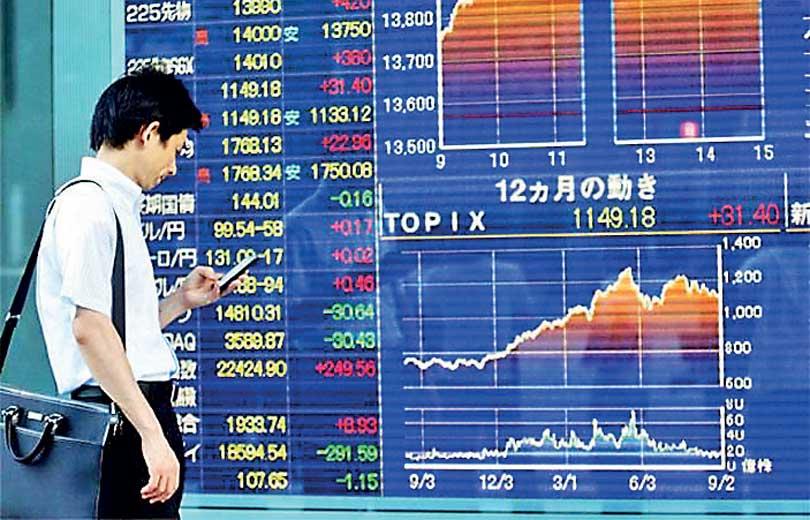11 May 2019 - {{hitsCtrl.values.hits}}

Shanghai, which lost more than seven percent from Monday to Thursday, ended up 3.1 percent, while Hong Kong piled on one percent in the afternoon
HONG KONG (AFP) - Shanghai led gains across most Asian and European markets yesterday at the end of a torrid week for equities, with investors keeping a nervous eye on China-US trade talks after Washington more than doubled tariffs on US$200 billion of imports.
Equities started the day on a high as dealers took heart from positive comments from Donald Trump on the prospects for a deal but the region turned negative as the threatened levies kicked in and China vowed to hit back, saying it “deeply” regretted the |US move.
However, Shanghai and Hong Kong bounced back on hopes the economic superpowers will be able to reach a deal to avert a trade war that most observers warn could shatter global growth and batter markets.
The tariffs came in after the first day of high-stakes negotiations in Washington between Chinese Vice Premier Liu He, US Trade Representative Robert Lighthizer and Treasury Secretary Steven Mnuchin.
After a week in which trading floors have been a sea of red, regional equities were given a lift by Trump saying he had received a “beautiful letter” from China’s Xi Jinping and that it was “possible” to get a deal.
Shanghai, which lost more than seven percent from Monday to Thursday, ended up 3.1 percent, while Hong Kong piled on one percent in the afternoon.
Sydney and Singapore each added 0.3 percent, while Seoul was up a similar amount as investors brushed off news that North Korea had tested a long-range weapon, which is likely to raise tensions after the breakdown of denuclearisation talks with the United States. Mumbai added 0.2 percent.
But Tokyo finished down 0.3 percent, while Wellington, Manila, Taipei, Jakarta and Bangkok also fell.
In early trade London rose 0.6 percent, Paris gained 0.9 percent and Frankfurt advanced more than one percent.
“Given the deadline has now passed there is the possibility that tariffs could still be avoided given that US officials allowed for goods currently in transit to be exempt from the new tariff increases,” said Michael Hewson, chief market analyst at CMC Markets UK.
“Which means there is a potential window, albeit a limited one, for an agreement to be hammered out.” But a lot of uncertainty remains.
“Markets will be in a holding pattern as we await the outcome of the meeting,” said Khoon Goh, head of Asia research at ANZ Bank. “If there is a breakdown and the tariffs go up, then we will see a risk-off tone in markets.”
OANDA senior market analyst Jeffrey Halley said the fact that tariffs were to rise midway through the talks gave “precious little time to come up with something that satisfies both sides”.
Although markets are up, “the peace is fragile, and it won’t take much today to panic investors into heading for the exit door en masse,” he added.
Halley also warned that while Trump praised Xi’s letter it was hard “to see how either of these two presidents will ever manage to really share the toys and play nicely on the global stage”.
In worrying sign, Hu Xijin, editor-in-chief of the Global Times which is published by the Communist Party’s People’s Daily -- cited a source familiar with the talks as saying there is “zero” chance of a deal before Friday.
“If it is that bad, the real suspense is whether the two sides will continue negotiations after Friday,” Hu said.
The slightly improved sentiment, and bargain-buying, provided support to higher-yielding, riskier currencies though the yuan continues to wallow around four-month lows.
On oil markets both main contracts edged up, though Halley warned that failure of the trade talks “would be the straw that breaks the camel’s back” and send the commodity tumbling, despite US-Iran tensions and Venezuela’s political crisis.
15 Nov 2024 6 minute ago
15 Nov 2024 28 minute ago
15 Nov 2024 57 minute ago
15 Nov 2024 58 minute ago
15 Nov 2024 1 hours ago